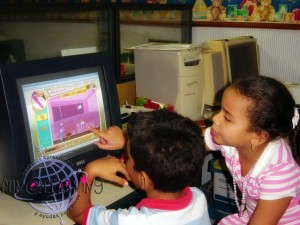Migrant and refugee kids missing out on education, study finds
 Migrant and refugee children could be falling through cracks in the education system because teachers are not equipped to meet the needs of students from CALD backgrounds, a New South Wales study has suggested.
Migrant and refugee children could be falling through cracks in the education system because teachers are not equipped to meet the needs of students from CALD backgrounds, a New South Wales study has suggested.
The study of NSW teacher training in multicultural education found only 27 per cent received training in teaching English as a second language (ESL) before joining the workforce. And, since entering the profession, only 30 per cent of classroom teachers had received professional training in the area.
The shortfall exists despite NSW public schools teaching more students from non-English-speaking backgrounds than other Australian state school systems.
In 2012, almost 230,000 of the state’s students – 30 per cent of enrolments – were from non-English speaking backgrounds, according to Department of Education figures.
One of the researchers, Associate Professor Megan Watkins of the University of Western Sydney’s Institute for Culture and Society, says the lack of adequate training could have long-term implications for many students.
”We complain about [international rankings] and the fact that we’ve got children who are not writing and reading as well as they should be,” she said.
”Well, a big part of that is that we have considerable numbers of students whose academic literacy is quite poor because they’ve just muddled through with the English they’ve picked up along the way.”
The study, which was part of a three-year project between the University of Western Sydney, the New South Wales Department of Education and the New South Wales Institute of Teachers, draws on a survey of more than 5000 teachers across the state.
Dr Watkins said many teachers would get ”a rude shock” to learn support from ESL specialists was no longer guaranteed.
Under O’Farrell government reforms this year, schools receive funding for ESL support rather than a teaching allocation, and it is up to the principal to determine how best to use the resources.
Professor Chris Davison, an expert in language education from the University of New South Wales, said students could ”easily slip through the cracks” without the support of an ESL specialist.
”You’ve really got to catch them and support them while they are keen to learn English so they don’t get traumatised by the whole experience,” she said.












